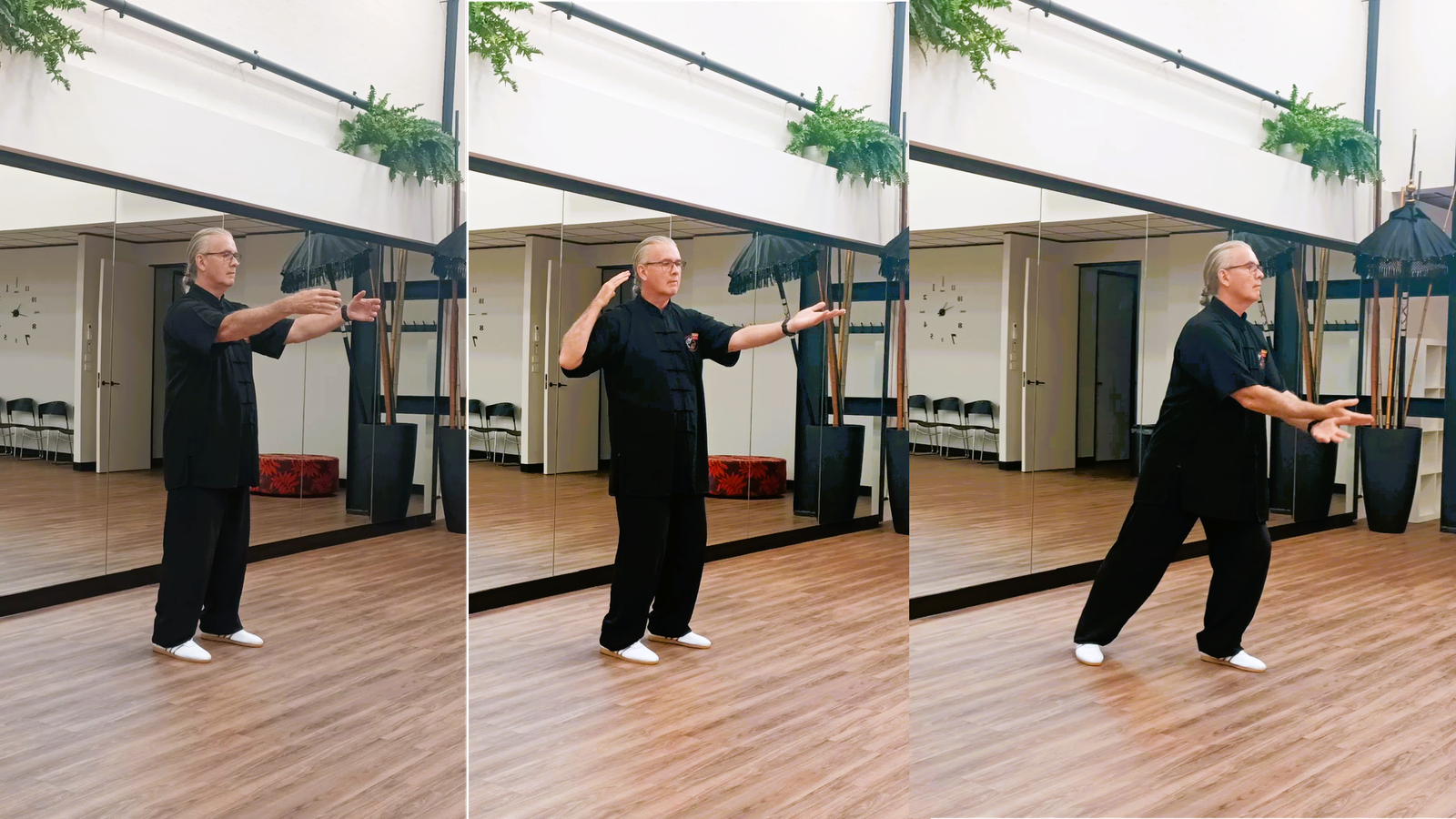
I have created this page to help support your health, well-being and Longevity pursuits. It contains some basic lifestyle practices that will support you along side your ongoing Qigong and Taijiquan practice.
In addition to teaching Qigong and Taijiquan, I am also a qualified Holistic Lifestyle coach and a Nutritional Food Coach. ( See my ‘About Sifu‘ page for my Qualifications. ) So the basic advice I am giving isn’t unqualified. I know from my own experience, that lifestyle choices can have a big bearing on good health and aging. And on how your feel in your body.
The four lifestyle areas I will discuss are;
- SLEEP
- STRESS MANAGEMENT
- NUTRITION
- MOVEMENT
These four lifestyle factors are essentially listed in order of importance. When I started my own journey into improving my health over 15 yrs ago the big emphasis was on getting your diet/nutrition correct. This seemed to be the main area focus back then, followed by movement/exercise. However, with advances in diagnostics and further studies, it now appears that if you aren’t getting quality sleep, it impacts your gut, brain function and stress levels, basically everything. These four lifestyle factors are interdependent and will impact each other if one or more is lacking. For example, the last three on the list will affect the quality of your sleep. This means taking a holistic approach. Let’s take a deeper dive.
Sleep

If you want to live a long and healthy life, sleep might just be the single most important ingredient. Sleep is essential for our health, happiness, and well-being. Thanks to modern science, it’s become possible to measure more accurately than ever the many benefits of sleep and the devastating effects of sleep deprivation on our biological mechanisms, and the implications are remarkable. Getting close to eight hours of quality sleep is vitally important.
Once you get below seven hours of quality sleep, the brain stops being able to perform in a cognitively optimal way, your biological systems don’t repair properly and makes you more vulnerable to a long list of serious health problems, including:
- Type 2 diabetes
- Hypertension and high blood pressure
- Alzheimer’s and dementia
- Depression and anxiety
- Decreased sexual energy
Achieving optimal sleep quality from a holistic perspective involves taking into account various aspects of one’s physical, mental, and emotional well-being. Here are some key factors that may contribute to better sleep quality:
- Sleep hygiene: Practicing good sleep hygiene habits, such as maintaining a consistent sleep schedule, creating a sleep-conducive environment, avoiding stimulants like caffeine and electronics before bedtime, and engaging in relaxing activities before bed can help improve sleep quality.
- Nutrition: Eating a balanced and nutritious diet that includes foods rich in sleep-promoting nutrients like magnesium, tryptophan, and melatonin can also support optimal sleep quality.
- Stress management: Finding effective ways to manage stress, such as through meditation, Qigong, Tai Chi, or deep breathing exercises, can help reduce the impact of stress on sleep quality.
- Mind-body practices: Practices such as mindfulness, visualization, and biofeedback can help promote relaxation and reduce stress, leading to better sleep quality.
- Exercise: Engaging in regular physical activity can also improve sleep quality by promoting relaxation, reducing stress, and regulating circadian rhythms.
- Environment: Creating a sleep-conducive environment that is quiet, dark, cool, and comfortable can also help promote better sleep quality. Avoid bright white light source prior to bed. Red light sources are best.
Try applying the above to improve sleep quality. Staying off devices like Ipads, mobile phones and laptops, that emit blue, an hour or two before bed. The blue light spectrum emitted by these devices disrupts the production of melatonin; your sleep hormone, thus affecting the quality and duration of your sleep.
Stress management

Again, if this isn’t managed it affects the other three. We had seen that it directly impacts the quality of your sleep, and it affects your ability to get to sleep. If you are stressed, your nervous system is in sympathetic over-drive. When this happens your body cannot achieve rest and digest as it does when the parasympathetic system is engaged. This means digestion becomes less efficient and the uptake of vital nutrients is hindered, leading to poorer health out comes.
Not only does it affect nutrition, it affects your level of motivation to be healthy. Being less motivated means you are less likely to exercise or prepare quality meals. You are less likely to complete daily tasks. Exercise can strongly influence our mental health. Lack of exercise makes us sluggish, leaves us feeling flat, and more stressed.
Stress can also occur as a result of toxic load on the body. Eating large quantities of highly processed foods causes a stress response in the body. Many people that eat such diets are unaware of the baseline of stress that results, and wonder why they can not relax properly.
Ongoing long term stress from all causes eventually leads to disease in the body. Here are some of the most common effects of chronic stress:
- Anxiety and depression: Chronic stress can increase the risk of developing anxiety and depression, as it can cause changes in the brain’s chemistry and neural pathways.
- Cardiovascular problems: Chronic stress can lead to high blood pressure, heart disease, and stroke, as it can cause inflammation and damage to the blood vessels and arteries.
- Digestive issues: Chronic stress can cause or exacerbate digestive problems, such as stomach ulcers, irritable bowel syndrome, and inflammatory bowel disease.
- Sleep disorders: Chronic stress can lead to insomnia and other sleep disorders, as it can disrupt the body’s natural sleep-wake cycle and make it difficult to fall or stay asleep.
- Weakened immune system: Chronic stress can suppress the immune system, making it harder for the body to fight off infections and illnesses.
- Weight gain and obesity: Chronic stress can cause an increase in the hormone cortisol, which can lead to weight gain and obesity, particularly in the abdominal area.
- Cognitive impairment: Chronic stress can affect cognitive function, including memory, attention, and decision-making abilities.
- Skin problems: Chronic stress can exacerbate skin conditions such as acne, psoriasis, and eczema, and can also cause premature aging of the skin.
Managing stress requires getting the three other lifestyle factors sorted (again they are all interrelated). Additionally your Qigong and Tai Chi practices will help manage stress with regular, consistent practice.
You can also practice mindfulness: Mindfulness meditation and other relaxation techniques such as deep breathing, visualization, and progressive muscle relaxation to reduce stress and promote relaxation.
Socialize and build relationships: Socializing with friends, family, and other supportive individuals can help to reduce stress and improve overall well-being. Seek out positive social connections and spend time with loved ones.
Prioritize self-care: Self-care activities such as taking a relaxing bath, reading a book, or listening to music can help to reduce stress and promote relaxation. Prioritize taking care of yourself physically, mentally and emotionally.
Seek professional support: If chronic stress is impacting your daily life, seeking professional support from a therapist or other healthcare provider may be beneficial.
In summary, managing chronic stress in a holistic manner involves taking a comprehensive approach that addresses the physical, emotional, and mental aspects of stress. Incorporating these methods into your daily routine can help to reduce stress and promote overall well-being. Try and make small consistent changes, as you do not want to get stressed trying to be less stressed by changing everything at once.
Nutrition

The topic of nutrition is a veritable ‘mine field’. One-size doesn’t fit all. As human beings we are so varied in our physiologic responses to food. So many factors come into play;
- When you eat affects digestion
- Chewing properly determines how much nutrient uptake there is
- Eating stressed affects digestion
- Individual gut biome determines what foods are good or bad, even when they are ‘healthy’ foods. And whether they are digested properly.
- Where the food you eat comes from is important. Is it organic or conventionally grown. Is it grown overseas and shipped in. Does it contain pesticide
- Your genetic heritage will determine what foods are optimal
- Stomach acidity and bile production
- food intolerances or allergies
And the list is endless. This is why one diet or food plan may be great for me and not so good for you. Bio-indiviuality affects which type of diet is best. Is the Mediterranean diet best, or Paleo, or Keto, of 5-2 diet, or Atkins, or carnivore diet or….and on its goes.
The best advice when it comes to diet is to eat as nutrient dense as possible, as fresh as possible and grown on healthy land. Nutrient density is paramount to getting the micro nutrients you need for optimal health. Many foods are now grown in nutrient depleted soils, especially mineral deficient because we have ‘strip mined’ our soils with conventional agricultural techniques which use artificial fertilizer and pesticides.
Contrary to what we have been led to believe for 40 years, cereals and grains are generally poor sources of nutrition. Big commercial food producers and big Agriculture have promoted grains as healthy and a must have in your diet. It has nothing to do with human health and everything to do with making money, not to mention the devastating effects of mono-cropping on the land and environment. If you are interested, read this book; Death by Food Pyramid How Shoddy Science, Sketchy Politics and Shady Special Interests Have Ruined Our Health By: Denise Minger
Refined grains like white rice, white bread, and pasta, have had most of the nutrient-rich bran and germ layers removed, leaving only the starchy endosperm. This makes them lower in fiber, vitamins, and minerals than their whole-grain counterparts, and they are low to start with. Generally getting rid of cereals and grains in your diet will lead to less inflammation and blood sugar issues.
The most nutrient dense foods are animals and their products, followed by plants. Animal products are considered nutrient-dense because they contain a wide range of essential nutrients, including high-quality proteins, healthy fats, vitamins, and minerals that are essential for human health, by weight.
Proteins found in animal products are considered complete proteins because they contain all the essential amino acids that the body needs to build and maintain muscle, bones, and tissues. These proteins are also more bio-available than plant-based proteins, which means that they are more easily absorbed and utilized by the body. This does not necessary mean plant proteins aren’t as healthy, but in-order to get all the essential proteins in the quantities needed, it means consuming large amounts of macros, usually carbs.
Animal sources also contain healthy fats, including monounsaturated and polyunsaturated fats, which are important for maintaining cell function, hormone production, and brain health. Additionally, some animal products, such as fatty fish, are rich in omega-3 fatty acids, which are known for their anti-inflammatory and heart-protective benefits.
Animal products are also excellent sources of many essential vitamins and minerals. For example, red meat is rich in iron, which is important for the formation of healthy red blood cells, while dairy products are a good source of calcium, which is important for bone health. Eggs are also a great source of choline, a nutrient that is essential for brain function.
In mass and social media you will often see reporting on extremely poor observational studies purporting how bad red meat is and that it may be cancer causing. What you have to understand is that these studies often don’t take into account what else is being eat, like highly processed foods and sugar. Many of them rely of self-reporting which is often highly flawed. Also meat in America, where many of these studies come from, the animals are raised in CAFO’s(concentrated animal feeding operations) with very high density, feeding animals GMO corn and many products not fit for human consumption because of pesticides. This means sick animals, lots of antibiotics which translates into meat that is poor in quality and full of residual chemicals.This meat is very different from animals that are pasture raised in a healthy stress free environment.
We all have a certain metabolic type based on the idea that individuals have unique metabolic needs and respond differently to different types of foods. This based on their genetic makeup, lifestyle, and environmental factors.
The Chek Institute’s concept of metabolic types is based on the idea that individuals have unique metabolic needs and respond differently to different types of foods, based on their genetic makeup, lifestyle, and environmental factors. There are three main metabolic types: protein types, carbohydrate types, and mixed types.
Protein types are those who have a higher protein requirement and tend to do better on a higher fat and protein diet. These individuals may experience hypoglycemia (low blood sugar) and other symptoms if they consume too many carbohydrates. They may also benefit from eating more animal products and healthy fats like nuts, seeds, and avocados.
Carbohydrate types are those who require a higher amount of carbohydrates to function optimally. They may experience fatigue and other symptoms if they do not consume enough carbohydrates. They may benefit from consuming more fruits, vegetables, and whole grains.
Mixed types are those who fall somewhere in between protein and carbohydrate types. They may benefit from a balanced diet that includes moderate amounts of protein, carbohydrates, and healthy fats.
It’s important to note that metabolic typing is a complex concept and requires careful evaluation and analysis by a qualified healthcare professional. The Chek Institute recommends a personalized approach to nutrition that considers an individual’s unique needs, goals, and health status.
In western countries we generally consume way too much carbohydrate is the form of sugars, flour and highly processed foods. Eating whole foods as close to nature as possible is paramount. This doesn’t mean eating predominantly raw food either. Many raw foods, particularly fibrous vegetables can be hard on the gut to digest for the western gut.
To summarize: Eat the best quality and most nutrient dense foods that you can get hold of. Avoid or eliminate all processed and manufactured foods. Specific Diets may work for some and not others, it is often fraught with difficulty because ‘one size fits all’ doesn’t always apply. We are not all bio-identical, and all have individual nutritional needs. I have personally found that a paleo style diet has worked well for my metabolic type. This will mean experimenting, and observing what your body responds best too.
This guide on Optimal Nutrition in a Nutshell from the Chek Institute may also be useful;
Exercise

Our amazing bodies have evolved with constant movement. Many of our body systems rely on movement of our muscles; the vascular side of our cardiovascular system and the lymphatic system. Movement is life in a biological system.
But what is healthy exercise? As a Chek Institute holistic lifestyle coach, we divide exercise into two types; working-IN and working-OUT. One builds energy and one depletes energy, but both are needed to balance health.
Working OUT refers to physical exercise that emphasizes external goals such as burning calories, building muscle, or improving physical performance. Working out typically involves intense and often repetitive movements that put stress on the body, which can be beneficial in moderation but can also lead to fatigue, injury, or burnout if overdone.
On the other hand, working IN is a concept that emphasizes internal goals such as building energy, enhancing self-awareness, and balancing the body-mind connection. Working in typically involves gentle and rhythmic movements, deep breathing, meditation, and other practices that promote relaxation, circulation, and restoration of the body’s natural energy systems.
Many people try to counter the effects of long periods of sitting in front of the computer at work by going to the gym and “flogging” themselves, believing this counters the effects of inactivity and sitting. If stressed this can be counter productive, as it creates greater stress response on an already stress body. Working OUT, as described above, is important to keep the body strong and maintain cardiovascular fitness. However if you are coming from a stressed and depleted base, working OUT will be counter productive. It may lead to injury, ongoing fatigue and low immunity. In this instance focus on working IN, do regular Qigong and Tai Chi to build energy and vitality.

We know from Yin and Yang in Chinese medicine that balance is vital. Working in may be required before working out. But both should always be balanced. Some Chek Institute practitioners will do Tai Chi or Qigong between their weight lifting sets to help balance the depleting effects of lifting heavy weights or resistance training.
While Qigong and Tai Chi are fantastic forms of movement for health and vitality they are working IN forms of exercise. However, some form of strength training is required as we age.

Resistance training, or weight training, is a form of exercise that involves using resistance, such as weights or resistance bands, to build muscle strength and endurance. While many people associate resistance training with bodybuilding or younger athletes, it is actually a vital form of exercise for aging adults as well.
As we age, our bodies naturally lose muscle mass and bone density, which can lead to a variety of health problems such as osteoporosis, sarcopenia, and frailty. Resistance training has been shown to be effective in combating these age-related declines by promoting muscle growth and bone density.
Additionally, resistance training has been found to have cognitive benefits, as it promotes the growth of new brain cells and improves cognitive function. A study published in the Journal of the American Geriatrics Society found that resistance training improved cognitive function in older adults with mild cognitive impairment.
Furthermore, resistance training has been shown to have a positive impact on overall quality of life by reducing the risk of falls and improving daily activities. By improving muscle strength and balance, resistance training can help prevent falls and maintain independence in aging adults.
In conclusion, resistance training is a vital form of exercise for the aging body, with benefits ranging from increased muscle strength and bone density to improved cognitive function and overall quality of life. Incorporating resistance training into a regular exercise routine can help aging adults maintain their physical and mental health and live a more fulfilling life.
Obviously, if you are embarking on a resistance training program seek good advice and check with your health practitioner before commencing. Start slow and build up. Remember to balance this with Tai Chi and Qigong.
In conclusion
The above information is a start that will lead you to better health. While it is general, it is enough to get you thinking about those four areas of lifestyle. Our bodies have an amazing ability to heal and become vital, we just have to give it the correct input. This section of the blog will evolve and become more comprehensive as time goes on. The field or regenerative health is an exciting one. We should all be aiming for a health span the equals our age span. No one wants the last 20-plus years of life to be lived with ill health and frailty.
Start small and build up to incorporating the above lifestyle factors. Listen to, and observe your body; how it responds to different foods, exercise and adequate rest.
Yours in Qigong and Taijiquan
Sifu Peter